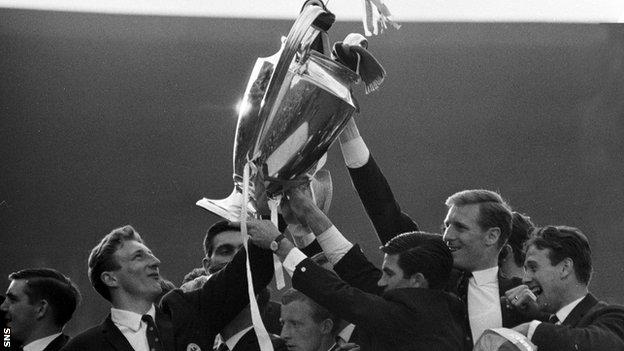
Such is the pinnacle that Celtic have now reached that others hoping to vie with them might consider hiring a team of Sherpas, plus oxygen masks, to get anywhere near that height. Even saying 'treble treble' aloud has the pneumatic sound of a post being driven into the earth with a sign carrying, 'No Trespassing!'.
It is a rare achievement which is worthy of gold-plating in the record books, alongside the other evidence of the roistering juggernaut that has driven out of the east-end of Glasgow in recent years. Above all is the irreproachable proof of consistency. Setting a UK record of 69 games unbeaten between 2016 and 2017 - in that latter year the earliest winning of the Scottish Premiership with eight games remaining, eight league titles in a row and unbeaten in any domestic cup game since 17 April 2016. All of which form the core of this weekend's achievement.
Knowing the frailties of human beings, which sometimes you cannot wholly predict, it is astonishing that they could keep players focussed so much on winning, regardless of the quality of the opposition, remorselessly, game after game. This attribute comes not just from tradition and the power of their purse, but clearly from astute management both in the dugout and the boardroom.
However, although longevity can sometimes make the joints creak, it has its uses for me in claiming eye-witness status to draw comparisons with other eras I lived through. For instance, I can go back to the first Celtic game I commentated on, 27 February 1965. Their opponents were Kilmarnock. Their manager Jimmy McGrory. They were seventh in the First Division and struggling.
It had just been announced that Jock Stein was to return to manage a club which seemed stuck in a rut of mediocrity. Two years and three months later I was in Lisbon to see them become European champions. Even now I feel a slight recoil of incredulity in writing that bare fact. The alchemy which turned lead into gold was achieved in a world that was much more demanding for Celtic than it currently is. Kilmarnock were to win the league the year Stein took over. Rangers were to reach a European final in 1967, the Ayrshire club were in the semi-final of the Fairs Cup in the same year, and Dundee United had triumphed over Barcelona in that same tournament.
It was a tough neighbourhood Celtic lived in, but they broke out of it, reached distant horizons and perhaps most importantly initiated new thinking in the game throughout the country. These were revolutionary days in football which is why they still resonate with me. Along came tracksuit managers, the dogmas of tactics, press-conferences - and with them the astute manipulation of the media - all stemming from the man who had joined Celtic from Welsh non-league football. J.K. Rowlings couldn't have concocted such a story.

Celtic bring home the European Cup in 1967
The clean sweep in 1967 led to nine years of domination despite determined bids to unseat them, from clubs which were actually getting stronger, not weaker. And of course, in those glory days, nobody could have predicted the club would almost collapse into bankruptcy in future years requiring a saviour from Canada to bail them out in. Fergus McCann's act of salvation in 1994, led to other managers, of varying degrees of success, all the way from Lou Macari right through to the present age and from which I pick out Martin O'Neill for special attention and merit. Taking the club to a European final in Seville in 2003, for the first time since the days of Stein, and where they were unlucky to lose, was a special feat which he recognised himself, in an interview with me at the start of the following season, when I was almost floored with this statement he made to me. "A Scottish team will never win a European trophy again."
This was no jaundiced post-match grouch but a sober analysis of the state of the Scottish game. I admired him for his candour, however prescient his thoughts were likely to be. He was the first man to field an entirely non-Scottish Celtic side in a match. A far cry from the local boys who won in Lisbon, but in keeping with the challenging times which demanded departure from tradition.
His domestic treble in season 2000/2001 and in five seasons winning three League titles, three Scottish Cups and a League Cup place him very near the Stein pedestal. It was the fact he had a firm grip on reality that made him a match for the still credible Rangers.
The battles which Ronny Deila and Brendan Rodgers, particularly in his early days at Celtic had to fight, were in an entirely different context from the eras Stein and O'Neill had to face. Although, frankly, it made their task less onerous. Nevertheless, Celtic did what you would have expected them to do with financial muscle and their great rivals mainly out of the way, go out and win everything in sight. Last Saturday was the culmination of totally credible dominance for which tribute should be paid.
However, it is not from the history books, but from sitting at the edge of greatness through the years that tells me unequivocally that the Stein era at Celtic, when Europe bowed the knee to him, was the greatest of them all.